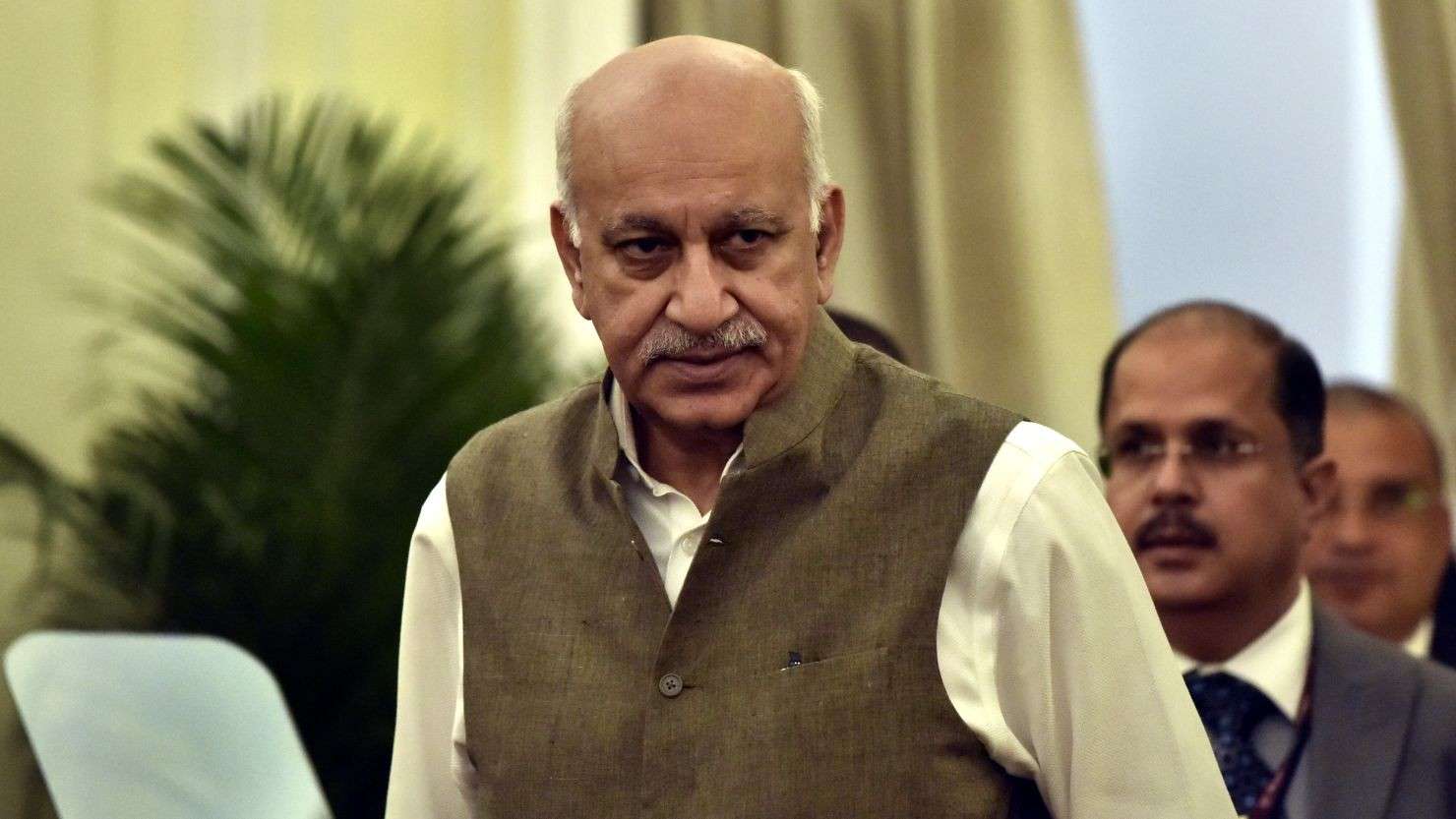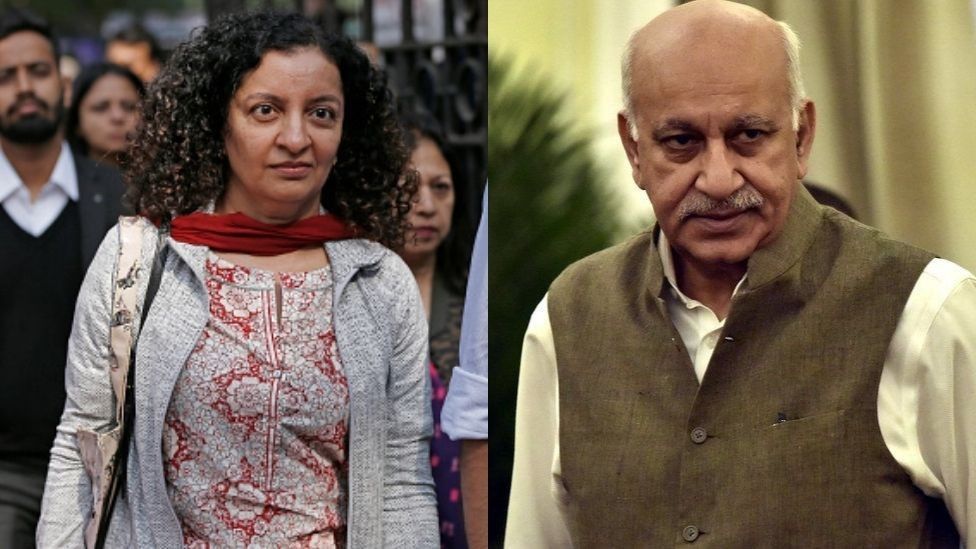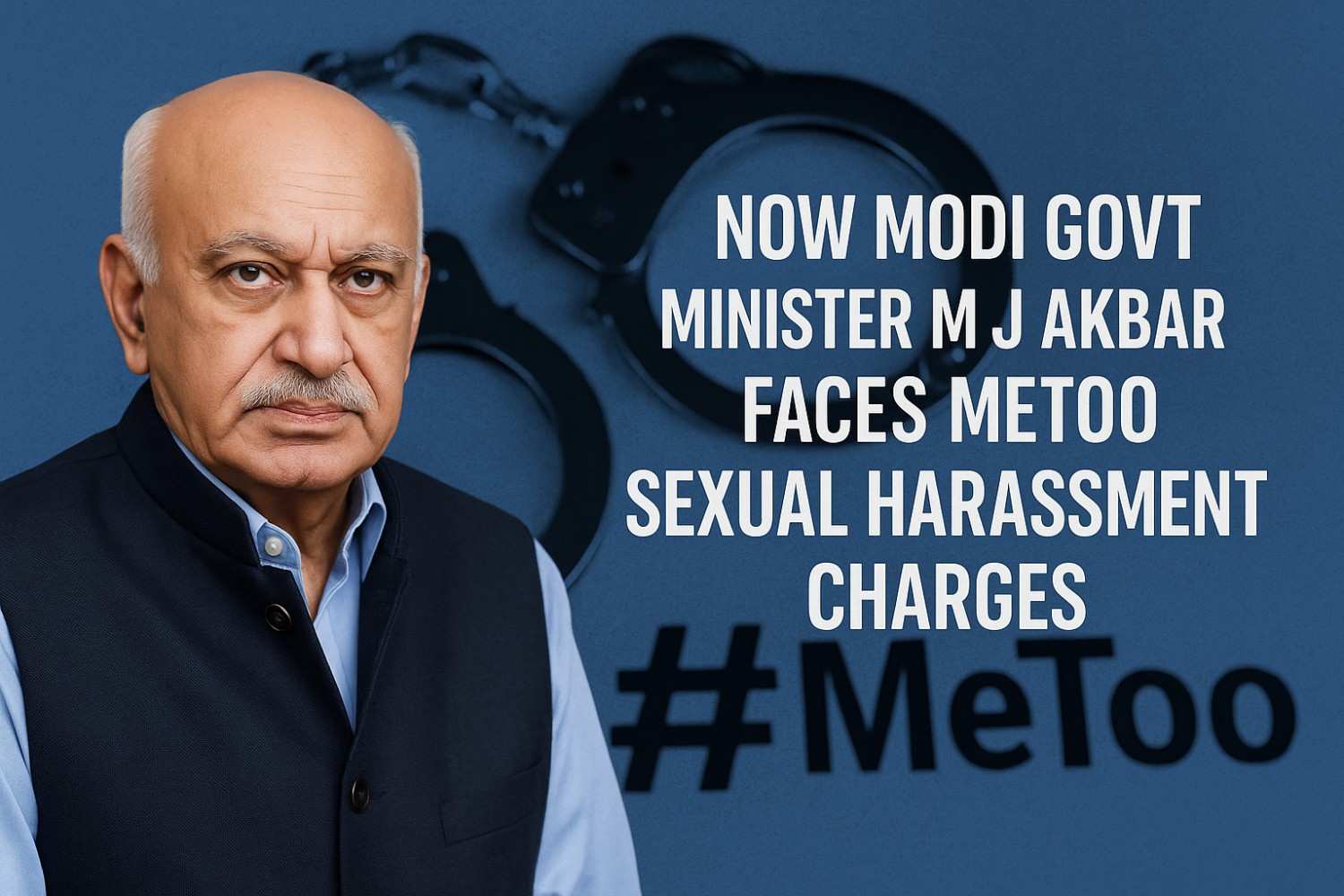If you’ve seen the headline “Now Modi Govt Minister M J Akbar Faces MeToo Sexual Harassment Charges,” you’re not alone—I encountered it while researching India’s #MeToo timeline, and it still draws attention because of what followed: multiple women publicly accused M. J. Akbar in October 2018, he resigned as Minister of State for External Affairs days later, and a high-profile court case unfolded for years.
What exactly happened in 2018?
In early October 2018, several women journalists—beginning with Priya Ramani—publicly alleged sexual harassment by M. J. Akbar from his years in newsrooms. The accusations surfaced as India’s #MeToo movement accelerated on social media and in national outlets.
On October 17, 2018, Akbar resigned as Minister of State for External Affairs, stating he would challenge the allegations in his personal capacity. Multiple major publications reported the resignation and the number of accusers.

Image Source: CNN
What legal actions followed after the allegations?
Soon after stepping down, Akbar filed a criminal defamation case against journalist Priya Ramani over her public allegations. After a two-year trial, a Delhi court acquitted Ramani on February 17, 2021, holding that a woman has the right to speak about sexual harassment, even after a long passage of time.
Akbar appealed the acquittal. On September 19, 2025, the Delhi High Court transferred his appeal to the special MP/MLA bench—meaning the appeal remains alive procedurally, and a final appellate outcome is still pending.
How did the case shape India’s #MeToo conversation?
The 2021 judgment was widely cited for recognizing the public-interest value of speaking up about workplace harassment and for weighing women’s dignity alongside reputational claims in defamation law. Coverage emphasized that courts acknowledged the social stigma victims face and the legitimacy of airing grievances on platforms of their choosing.
For many observers, the Akbar–Ramani litigation became a test case: could women’s #MeToo disclosures be chilled by defamation threats, or would courts protect such speech when made in good faith? The trial ruling favored the latter; the appeal’s transfer in 2025 shows the legal conversation isn’t completely closed.

Image Source: BBC
Now Modi Govt Minister M J Akbar Faces MeToo Sexual Harassment Charges — where does that leave things today?
- Status of the allegations (public domain): Multiple journalists publicly accused Akbar in 2018; he denied the claims.
- Government role: Akbar resigned as MoS, External Affairs on Oct 17, 2018.
- Court outcomes so far: Trial court acquitted Priya Ramani (Feb 17, 2021); Akbar’s appeal is ongoing and was transferred to the MP/MLA bench in Sept 2025.
What can readers learn from this timeline?
- Documentation matters. The court highlighted why survivors may speak after long delays and treated such speech as a matter of public good in certain contexts.
- Legal processes take time. Even after a headline-grabbing acquittal, appeals can extend the debate—journalists should update stories with changes, and readers should check the latest filings.
- Workplace policies are essential. The case fueled wider adoption of formal anti-harassment policies and grievance mechanisms across Indian media and beyond (an inference many legal analyses and newsroom reports have noted following the 2018 wave).
Frequently Asked Questions
1. Did M. J. Akbar admit wrongdoing?
No. Akbar denied the allegations, resigned from his ministerial post, and filed a criminal defamation case against Priya Ramani, which he lost at trial in 2021. His appeal remains pending after being transferred to the MP/MLA bench in Sept 2025.
2. What did the 2021 court ruling actually say?
The trial court acquitted Ramani, emphasizing that women can raise sexual-harassment grievances even after long intervals and that reputation rights cannot supersede a woman’s life and dignity under India’s Constitution. Media summaries of the judgment captured these key lines.
3. Is the case over now?
Not entirely. While Ramani’s acquittal stands, Akbar’s appeal is active. On Sept 19, 2025, the Delhi High Court transferred the appeal to the special MP/MLA court for hearing. Readers should watch for future orders.
4. Why is this case important for #MeToo in India?
It became a landmark in balancing speech about harassment and defamation law. The 2021 ruling has been cited as strengthening space for survivors to speak, while the ongoing appeal shows courts continue to refine the contours.
So, what should you remember?
- “Now Modi Govt Minister M J Akbar Faces MeToo Sexual Harassment Charges” first trended in October 2018 as multiple women accused him; he resigned on Oct 17, 2018.
- The defamation case against Priya Ramani ended in an acquittal (Feb 17, 2021), a ruling lauded for recognizing women’s right to speak about harassment.
- The appeal is ongoing, transferred in Sept 2025, so legal developments may still occur.
Closing Thoughts: What this headline means—then and now
Headlines like Now Modi Govt Minister M J Akbar Faces MeToo Sexual Harassment Charges capture a moment; the full story includes resignation, courtroom scrutiny, and evolving legal principles around speech and dignity. As of October 10, 2025, Ramani’s acquittal stands and Akbar’s appeal continues—an ongoing reminder to follow updates and rely on primary reporting and court records for the latest facts.




